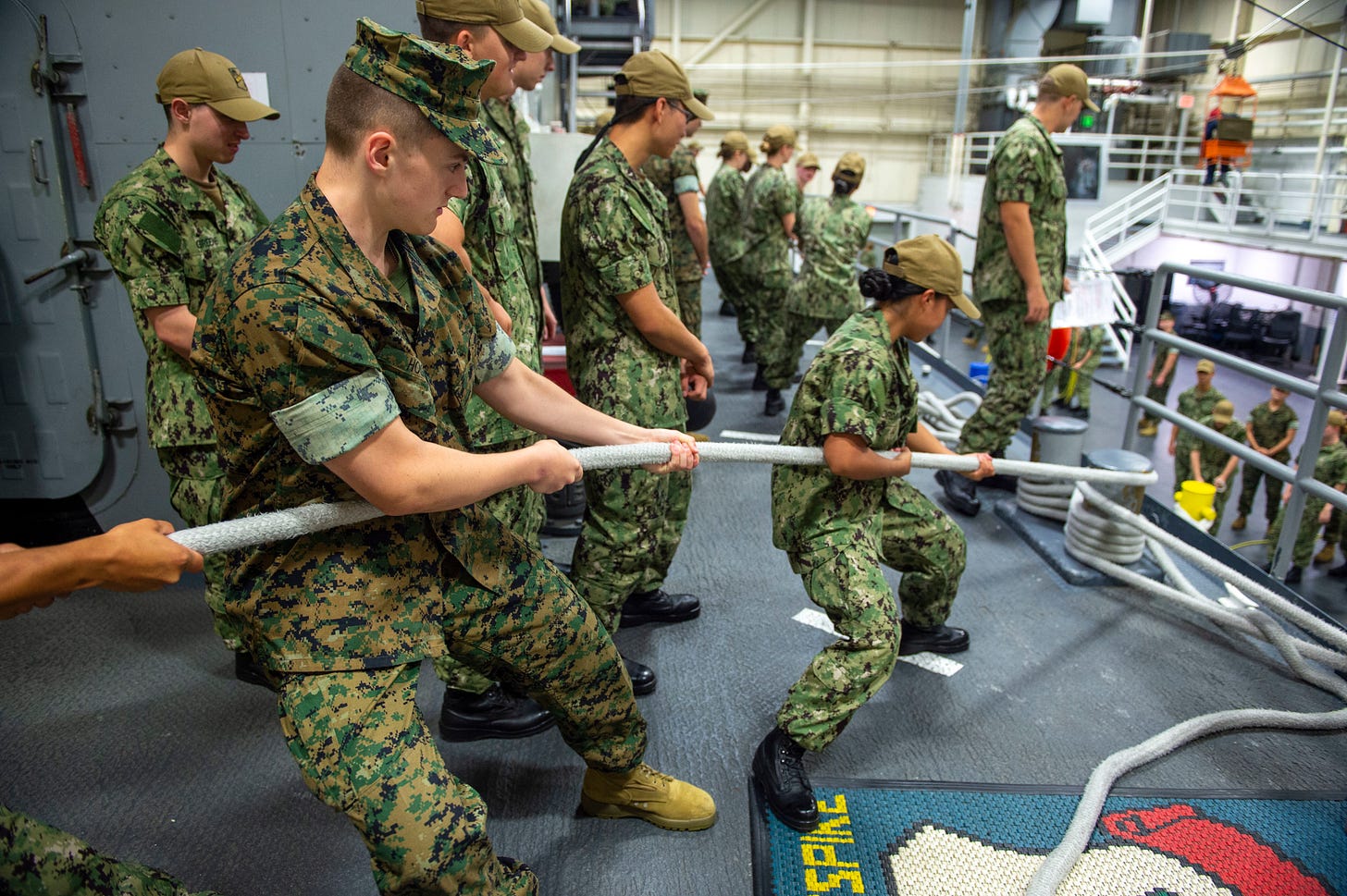“Where is your squad member? Why isn’t he here?”
Probably because he slept in, I thought. He should’ve gotten here on time (i.e., early) like the rest of us.
In those pre-dawn moments on the dewy grass outside of John Barry Hall on the campus of Villanova University, a lecture was underway. No professors were involved—it was far too early in the morning, and I suspect few of them, had they been awake or aware of what we were doing, took much interest in our initial training as new members of the university’s Naval Reserve Officer Training Corps.

Rather, this lecture was being delivered by one of our instructors—someone only a few years older than us—whose mission it was to get us all thinking a little bit differently about ourselves, about each other, about our future. And although it wasn’t a grand thesis on interpersonal relationships or leadership, it was a lecture that conveyed a lesson that’s stuck with me ever since.
“I’m counting, and you’re missing one of your squad members.”
Right, I thought. We can count too. We know he’s not here.
“He’s late. And it’s just as much your fault as it is his.”
At first, this seemed unfair. The rest of us had gotten there on time. We followed directions and did what we were supposed to do.
“When you’re a team, it’s your job to make sure everyone succeeds. Because if you don’t, you all fail.”
Teamwork and looking out for each other involves a mindset of mutual responsibility. You’re not just responsible for yourself, you’re also responsible for the well-being and performance that person to your left and to your right—and for the team as a whole.
How do you teach that? Aside from talking about it, how might you create experiences that help people understand teamwork deep in their psyche, memories that influence attitudes and behaviors?
The key lies in one of the U.S. Navy’s Leadership Principles—number seven of 11 in the list—“Train your unit as a team.”
Namely, leaders have to embrace a set of behaviors that encourage this type of teamwork, or it’ll rarely come together. And one key way to do that is through training—learning by doing, and learning as a team.
Sometimes it takes being held accountable for someone else’s mistake to drive that point home. Sometimes it takes actually working through tough personality differences and perspectives on how to accomplish a task to really “get” what teamwork is all about.
Because it’s one thing to send all of your direct reports off to get trained on some new technical skill as individuals.
It’s another thing altogether to have them learn together.
One reason why it’s so powerful to have a team train together is that there’s a reward in the journey itself. There’s value in building routines and patterns of interaction with people in a training environment because it’s a foundation for behavior when the stakes are real. When people go through learning experiences together, they also have the unique opportunity to build shared experiences—and a shared language to talk about it—with each other.
So it’s important for us as leaders to remember that if you want to build teamwork, train the group as a team. Don’t send them off to read about or hear about teamwork or leadership entirely on their own. That’s valuable, but you also need to for them to become a team by facing challenges together and learning first-hand what works and what doesn’t.
That’s why my favorite team building exercises have nothing to do with “trust falls” or having everyone play “two truths and a lie.”
Instead, some of my favorite team building exercises involve the team actually tackling a challenge or opportunity within their organization, defining the problem, collecting data to test assumptions, designing solutions and implementing them. This process can be intense and requires some facilitation, yet it yields both a meaningful outcome for the organization and a team that’s operating a higher level of performance than before.
If you really want people to work as a team in your organization, therefore, remember the value that’s to be had in training them as a team. It takes some hard work and focused energy, but it pays off.
So what happened in that squad with the late member? They quickly designated someone to check in to make sure that person was awake, and then they ensured that he walked with them to where they needed to be in the morning. Over time, he didn’t need that oversight. But that’s looking out for each other. That’s teamwork, and that’s a lesson they learned because they were trained as a team.
For more details about how to manage your subscription including e-mails and notifications, click here.
References and for further reading
For all posts regarding the 11 U.S. Navy Leadership principles, click here.
The 11 principles:
Know yourself and seek self-improvement
Be technically and tactically proficient
Know your people and look out for their welfare
Keep your people informed
Set the example
Make sure the task is understood, supervised, and accomplished
Train your unit as a team
Make sound and timely decisions
Develop a sense of responsibility among your people
Employ your command in accordance with its capabilities
Seek responsibility and take responsibility for your actions



